december-top.html
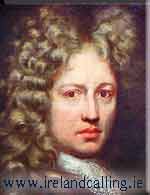 1691 Patrick Sarsfield set sail from Cork harbour on this day in 1691. He was a leading Irish soldier in the Jacobite Wars between the Irish Catholic supporters of King James and the Protestant followers of William of Orange.
1691 Patrick Sarsfield set sail from Cork harbour on this day in 1691. He was a leading Irish soldier in the Jacobite Wars between the Irish Catholic supporters of King James and the Protestant followers of William of Orange.
Sarsfield was born in Lucan, Dublin, and served in the Irish Army, often alongside the Army of France. He was a leading Catholic soldier that fought for King James II when he was deposed by his daughter Mary II and her husband William of Orange.
During the Siege of Limerick, Sarsfield led a capture of arms and artillery which delayed the Williamite forces for weeks. This made him an Irish hero. Sarsfield was less than impressed with the strategy and nerve of James, despite fighting for him.
When the Williamite forces became too strong at Limerick, Sarsfield negotiated the treaty, under which he and his men had to leave Ireland for France. This exodus became known as the ‘Flight of the Wild Geese’.
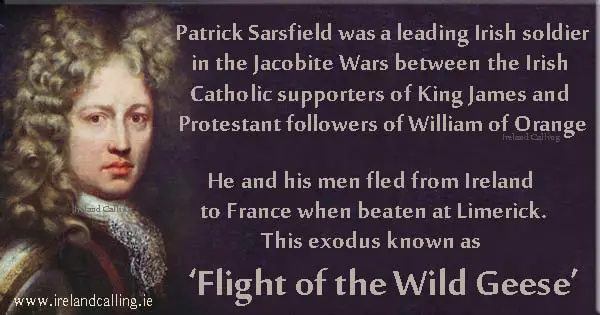 Sarsfield felt he and his men had been let down by King James II’s lack of action in the conflict. He also felt a great deal of admiration for the military prowess of his opponent, William. When surrendering the city of Limerick, Sarsfield reportedly told his English counterparts:
Sarsfield felt he and his men had been let down by King James II’s lack of action in the conflict. He also felt a great deal of admiration for the military prowess of his opponent, William. When surrendering the city of Limerick, Sarsfield reportedly told his English counterparts:
“As low as we are now, change but kings with us and we will fight it over again with you!”
* * *
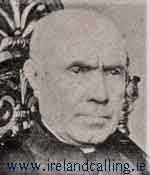 1799 Nicholas Callan was born in County Louth on this day in 1799. He was the man who invented the induction coil, a mechanism that enables great volumes of electrical charge to be harnessed from a relative weak source.
1799 Nicholas Callan was born in County Louth on this day in 1799. He was the man who invented the induction coil, a mechanism that enables great volumes of electrical charge to be harnessed from a relative weak source.
He wrapped about 200 feet of copper wire around a 2 foot block of iron. The wire was fed with a low voltage of electricity from a small battery, which would travel round and round the iron block and be released back into the battery at the other end of the wire.
When this circuit was broken, the iron block had the charge of the 200 feet of copper wire, wrapped around it, producing a far greater electric voltage.
Then when the circuit was interrupted, it contained a large amount of power, which was used to power devices such as x-ray machines, radio transmitters and electrotherapy machines.
Click here to read about more great irish scientists
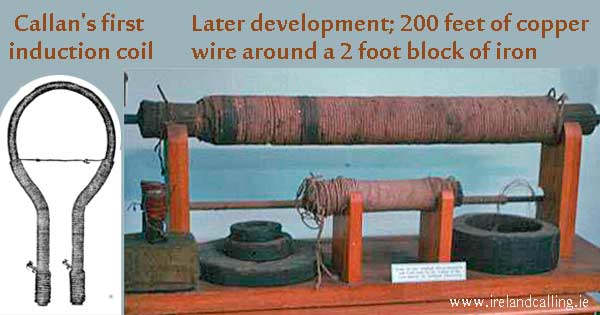
* * *
1882 Joe Clarke was born in Ireland on this day in 1882. He was a nationalist and fought in the Easter Rising alongside Éamon de Valera. He was shot in the head by British forces but survived, and was imprisoned in England.
Clarke returned to Ireland after his release, and worked for Sínn Féin. He later established Wolfe Tone Weekly with Brian O’Higgins, an Irish republican newspaper.
Despite fighting together during the Easter Rising, Clarke and de Valera became political rivals after the formation of the Free State government. Things often turned heated between the two men, as passions ran high. Clarke once vowed that he would outlive de Valera, and he did.
Click here to read more about the Easter Rising
* * *
1961 Happy birthday to Marcus O’Sullivan, born in Cork on this day in 1961. He was a top-class middle distance runner and represented Ireland at four Olympic Games. O’Sullivan’s reached the final of the 1500m event at Seoul in 1988. He just missed out on a medal, finishing eighth and less than three seconds behind the gold medal winner, Kenyan Peter Rono.
O’Sullivan did win gold medals for Ireland during his career. He picked up the winner’s medals in the 1500m at the Indoor World Athletics Championships in 1987, 1989 and 1993. He now runs a summer camp for young athletes.
Click here to read about more top Irish sports stars
* * *
1989 Samuel Beckett died in France on this day in 1989. He was one of the great Irish writers of the 20th century. Beckett wrote novels, plays and television programmes. His works contained a pessimistic outlook on life, and were often referred to as black comedies.
Beckett was awarded the Nobel Prize in Literature in 1969. He has been honoured in numerous ways both in his life and after his death. The most notable tribute to him is the Samuel Beckett Bridge, an impressive harp shaped structure that spans the River Liffey in Dublin.
Click here to read about more great Irish writers
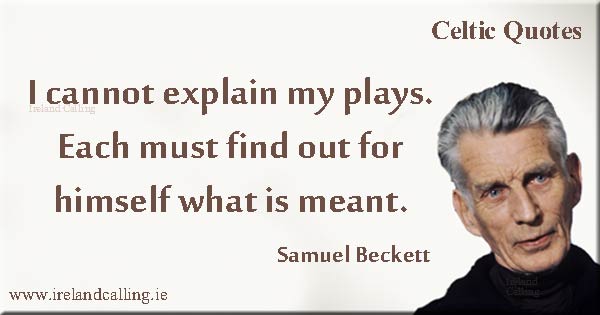
* * *
2012 Arthur Quinlan died on this day in 2012. He was a legendary Irish journalist, often referred to as ‘Mr Limerick’ or Uncle Arthur’. He interviewed countless royals and political leaders from countries all around the world.
Quinlan started his career with the Irish Times in the 1940s. He quickly recognised that Shannon Airport was a great place to get unscheduled interviews with major figures, as many planes flying in or out of Europe use it as a fuelling stop.
Quinlan interviewed George W Bush at 4am about the situation in the Middle East. He spoke with Che Guevara about his Irish roots and reportedly taught Fidel Castro how to make Irish coffee.
december-bottom.html